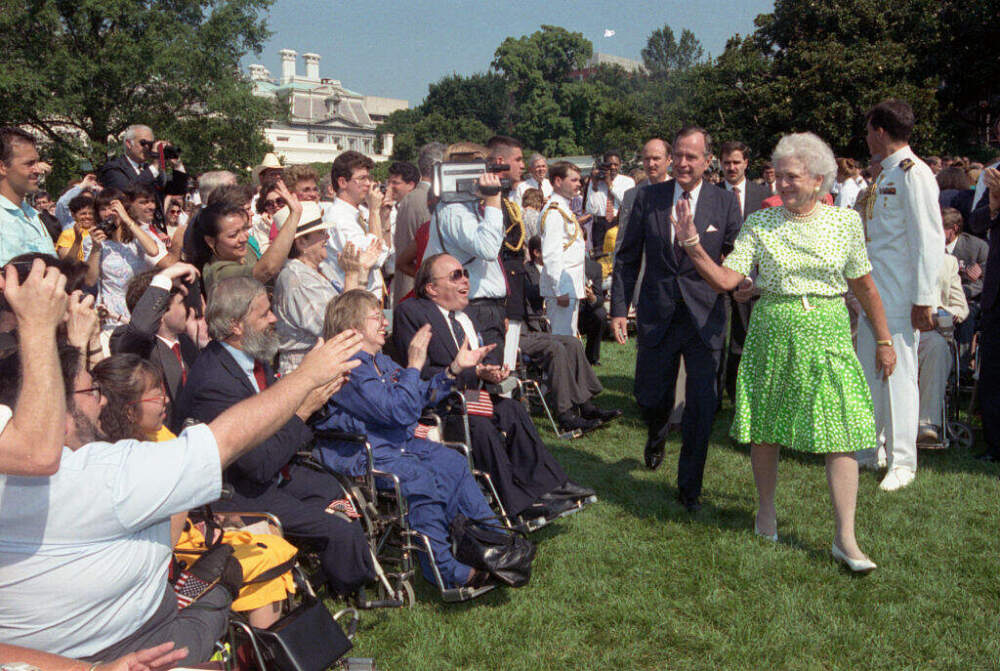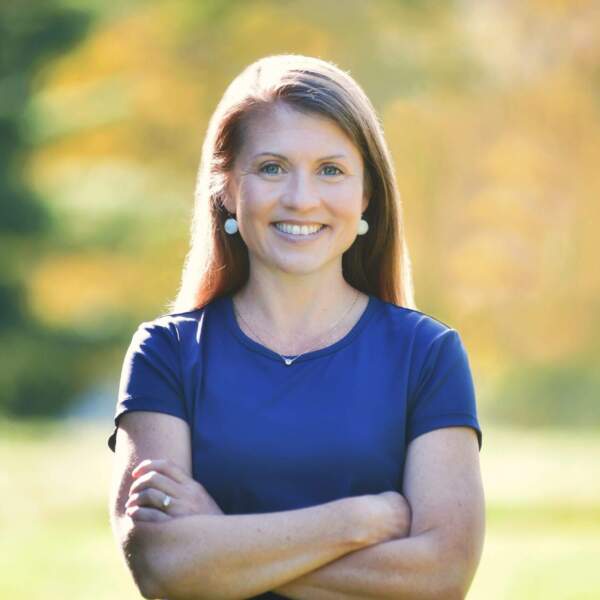Advertisement
Commentary
For people with disabilities: Kindness is nice. Legal protections are necessary

Once or twice a year, I hear from a pregnant woman who has received a prenatal diagnosis of Down syndrome. She has to decide whether or not she should terminate her pregnancy.
Sometimes her doctor has assured her that termination would be best for her, her family and her child. Sometimes her partner has told her he will leave if she continues. Sometimes she wrestles in agony with love for her child and fear of what her child’s life will be like in a society that might reject them.
Sometimes she chooses to terminate, and other times she chooses to continue the pregnancy. Either way, I respond with as honest a portrait of our life as I am able, as a family with a daughter with Down syndrome. I offer care and support no matter what choice she makes. And, until recently, I would tell her there’s never been a better time to be born with an extra copy of the 21st chromosome.
Now, as the Republican-led Congress moves to pass President Trump’s domestic agenda in the so-called One Big Beautiful Bill Act, I am losing my confidence that each year is a better year for people like our daughter.
Since Trump’s return to the White House in January, the Social Security Administration has ceased funding the Retirement and Disability Research Consortium, which was instrumental in fostering “research, communication and education on matters relating to disability policy.” Reduced funding for research at the National Institutes of Health disproportionately affects disabled people. The proposed reorganization of the Department of Education and the Department of Health and Human Services puts the rights of disabled students in jeopardy. Early drafts of the bill under consideration show that the Trump administration wants to eliminate funding for state councils of developmental disabilities, lifespan respite programs and advocacy organizations, among other programs.
I am losing my confidence that each year is a better year for people like our daughter.
The administration is also undermining the idea that disabled people deserve support, care and equal rights. They have eliminated sign language interpreters from the White House press room. A White House webpage on accessibility, whitehouse.gov/accessibility, is no longer available. And members of the administration continue to use rhetoric that diminishes the value of the disabled, whether the remarks come from Elon Musk espousing the r-word on Twitter or Health and Human Services Secretary Robert F. Kennedy, Jr. who suggested autism destroys families.
For the past 19 years of my daughter Penny’s life, we have watched the world become a more hospitable space for her and for our family. We’ve moved past the era of institutionalizing children and adults with intellectual disabilities. The life expectancy for people with Down syndrome has doubled in my lifetime, from around 25 in the early 1980s to over 60 now. More and more kids with Down syndrome have been integrated into public school classrooms, to the benefit of disabled and typical students alike. Universities like Syracuse, Clemson and Villanova (among dozens more) have begun programs that welcome students with intellectual disabilities into college life. Kids and adults with Down syndrome now appear in advertisements for brands like Sephora, Target and the Gap. Actors with Down syndrome receive leading roles in television shows and films. Medical research into conditions associated with Down syndrome — including early-onset Alzheimer’s, obesity and celiac disease — has increased.
Advertisement
On a personal level, these social, educational and medical advances have resulted in our daughter’s flourishing. For seven years, Penny’s public school provided an annual planning process, in addition to her IEP meeting, to support her future goals. She was a member of the cheerleading team and worked on the yearbook. She received the academic support she needed to present a 40-minute senior project to a live audience. And Penny’s presence benefited the rest of the community. She brings kindness and joy wherever she goes, and she helps her school community see the gifts that every individual has to offer.
The remarkable strides in human rights for people like Penny rest on the shoulders of parents who insisted on loving their children at home, rather than in institutions, and upon disability self-advocates who refused to remain unseen and unheard. Those parents and advocates created the political will for legislation that integrated kids with intellectual disabilities in public schools and established the Americans with Disabilities Act in 1990, which prevents discrimination against people with disabilities.
Throughout our experience as parents, we have needed individuals who believed in Penny, cared for her and supported her and us. But goodwill and kindness are not enough. We also need the government to protect her right to learn in the “least restrictive environment.” We need the government to support research, to provide job training opportunities and to protect her against discrimination. The policy changes pursued by the Trump administration put those rights and services in jeopardy in our schools, workplaces and social support systems.

For decades, the disability community fought to gain a place within American society. I think back to activists like Judy Heumann, who became the first wheelchair-user to teach in a New York City public school and went on to lead protests across the nation. Or parents like Lowell Weicker, who had a son with Down syndrome and also served as governor and U.S senator from Connecticut. Weicker used the power of his political position to advance the Americans with Disabilities Act during his time in Congress. And that's not to mention the countless women and men whose names have not been recorded who stood, or rolled, to protest discriminatory practices.
These heroes of the recent past can instruct us as we face another chapter in the history of disability rights in the United States. All of us who know the intrinsic value and significance of people with disabilities once again need to rise up to advocate for protection, care and support.
If a woman were to call me right now with a prenatal diagnosis of Down syndrome, I could not tell her it is the best time in human history to give birth to her child. But I could tell her that society has become more welcoming, and that Penny enriches every life she encounters. I could tell her that, even when the legal protections are diminished, the love remains. And, in the past, love has propelled legislation that dignifies, values and supports people with disabilities. I could tell her that we can once again make this nation a place where every year is a better one to be born with a disability.
Our words and actions once made the world more accessible and just. We can do it again.
Follow Cog on Facebook and Instagram. And sign up for our newsletter, sent on Sundays. We share stories that remind you we're all part of something bigger.

